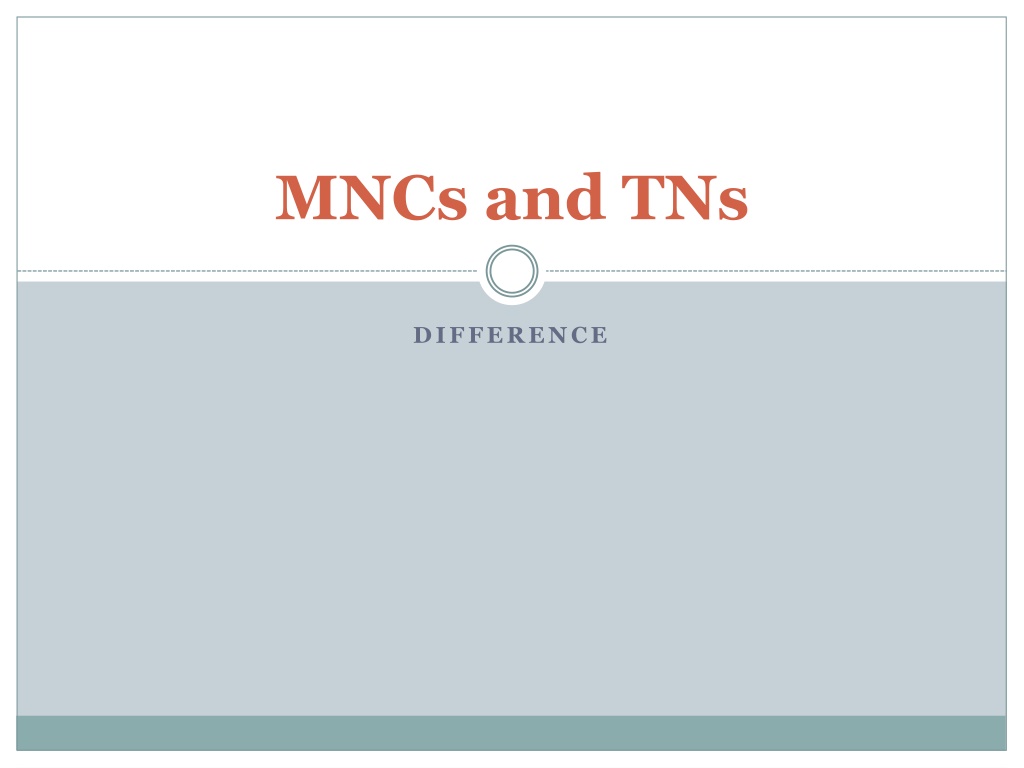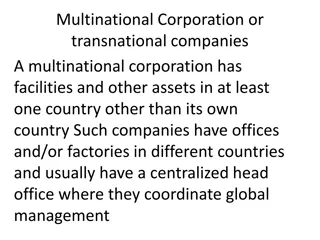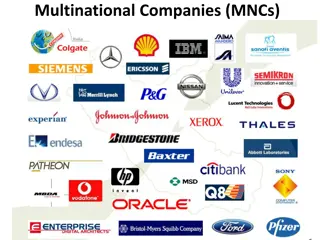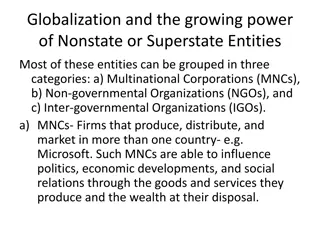Understanding the Difference Between MNCs and TNCs
Multinational Corporations (MNCs) own or control production in one or more countries outside their home country, while Transnational Corporations (TNCs) operate across multiple countries without a national home base. MNCs have a home country identity, offer localized products, and include examples like Proctor & Gamble and Microsoft. TNCs operate globally, prioritize local market responsiveness, and have subsidiaries. Both MNCs and TNCs offer advantages like increasing foreign exchange reserves and fostering international relations.
Download Presentation

Please find below an Image/Link to download the presentation.
The content on the website is provided AS IS for your information and personal use only. It may not be sold, licensed, or shared on other websites without obtaining consent from the author. Download presentation by click this link. If you encounter any issues during the download, it is possible that the publisher has removed the file from their server.
E N D
Presentation Transcript
MNCs and TNs DIFFERENCE
Definition TNCs MNCs A multinational corporation is an organization that owns or controls production of goods or services in one or more countries other than their home country. TNC is a commercial enterprise that operates substantial facilities, does business in more than one country and does not consider any particular country its national home.
Home Country TNCs MNCs MNC has an international identity as belonging to a particular home country where they are headquartered. A transnational company is borderless, as it does not consider any particular country as its base, home or headquarters. Not all MNC s are transnational companies. Transnational corporations are a type of multinational corporations.
Product Offering TNCs MNCs MNC does not have coordinated product offerings in each country. It is more focused on adapting their products and service to each individual local market. TNC gives decision-making, R&D and marketing powers to each individual foreign market
Examples TNCs MNCs Proctor & Gamble, Microsoft, Apple Inc, Hewlett Packard (HP), Nestle, PepsiCo, Sony Corporation, IBM etc. General Electric, Royal Dutch, Ford Motor, Allianz, AXA, Exxon Mobil, etc.
Member Countries TNCs MNCs Multinationals have branches in other countries. Transnationals have subsidiaries.
Advantages TNCs MNCs Apart from establishing itself globally, one of the significant advantages of a transnational company is that they are able to maintain a greater degree of responsiveness to the local markets where they maintain facilities. MNC s result in a significant increase of foreign exchange reserves. They assist in building good relations with other countries and in promotion of parent country s culture and traditions in other countries. Also, they have an ability to use foreign subsidiaries to minimize tax-liability.























